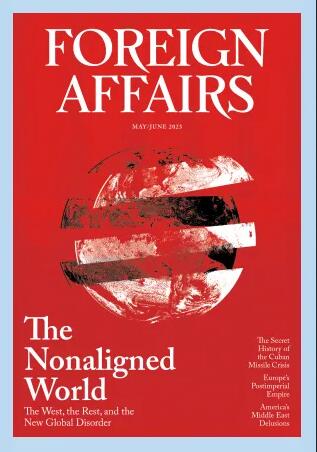Strengthening EU Defence Capabilities Under Conditions of the Russian-Ukrainian War
IF 6.3
2区 社会学
Q1 INTERNATIONAL RELATIONS
引用次数: 0
Abstract
The issued article describes the military-political dimension of the European Union's activity and its prospects for transformation into a collective security association within the framework of the Russian-Ukrainian war. This topic was the focus of researchers, however, it was considered by them in the context of the history of the European Union and did not involve a separate study. The purpose of this study is to consider the gradation of the defense capability of the European Union in the period from the beginning of the Russian-Ukrainian war (2014) to the moment of the full-scale invasion of the Russian Federation into Ukraine (2022) and the prospects for further development of this area within the EU. The basis of methodological basis of the research is a combination of general historical and political science methods, among which retrospective and institutional methods take the leading place. Analytical work with materials and selection of certain works for each of the tasks was accompanied by the use of critical-dialectical, historical-systemic, action, and problem-chronological methods. As a result of the study, it was found that the military component of the defense capability of the European Union consists of the review and development of the European Security and Defense Policy (ESDP), the creation of new defense programs (PESCO), “loyalty programs” (European Partnership Policy) and other possible structures for the emergence of a large security space on the borders with Russia and its satellites. The practical value of the work is revealed in the possibility of using the mentioned facts in the further study of the topic of the development of the defense sphere of the European Union in the 21st century, as well as the problems of supranational security formations, in particular on the territory of Europe俄乌战争条件下加强欧盟防御能力
发表的文章描述了欧洲联盟活动的军事政治层面及其在俄乌战争框架内转变为集体安全协会的前景。这个话题是研究人员关注的焦点,然而,他们是在欧盟历史的背景下考虑的,没有涉及单独的研究。本研究的目的是考虑从俄乌战争开始(2014年)到俄罗斯联邦全面入侵乌克兰(2022年)期间欧盟防御能力的等级,以及欧盟内部这一领域进一步发展的前景。研究的方法论基础是一般史学和政治学方法的结合,其中以回顾性方法和制度方法为主。对材料的分析工作和对每个任务的某些作品的选择伴随着使用批判-辩证,历史-系统,行动和问题-时间顺序方法。研究结果发现,欧盟防御能力的军事组成部分包括审查和发展欧洲安全和防务政策(ESDP),建立新的防务计划(PESCO),“忠诚计划”(欧洲伙伴关系政策)和其他可能的结构,以便在与俄罗斯及其卫星国的边界上出现一个大的安全空间。这项工作的实用价值体现在使用上述事实进一步研究21世纪欧盟国防领域发展主题的可能性,以及超国家安全编队问题,特别是在欧洲领土上的问题
本文章由计算机程序翻译,如有差异,请以英文原文为准。
求助全文
约1分钟内获得全文
求助全文
来源期刊

Foreign Affairs
INTERNATIONAL RELATIONS-
CiteScore
4.80
自引率
0.00%
发文量
2
期刊介绍:
Founded in 1922, Foreign Affairs is a prominent American magazine that focuses on international relations and U.S. foreign policy. It is published by the Council on Foreign Relations, an esteemed nonpartisan think tank and membership organization dedicated to analyzing U.S. foreign policy and global affairs. While the print magazine is released every two months, the website offers daily articles and publishes anthologies every other month.
 求助内容:
求助内容: 应助结果提醒方式:
应助结果提醒方式:


